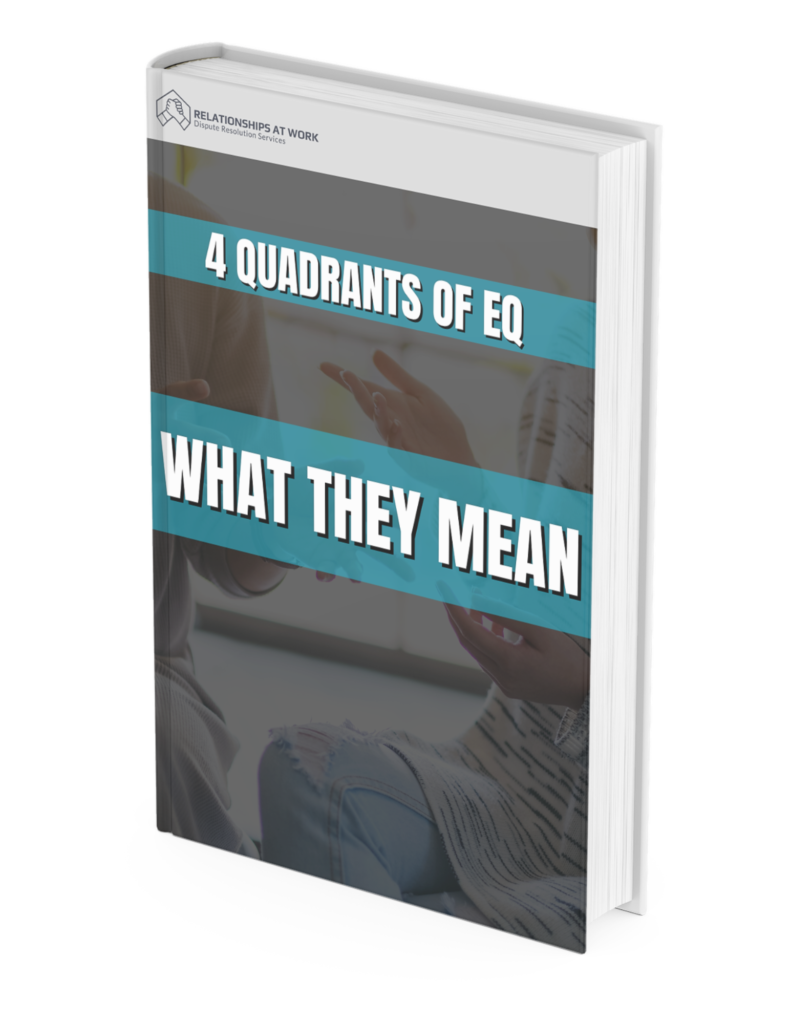Step # 1 on Mindset Shift
Step # 1 on Mindset Shift
Build a Stronger You
Build a Stronger You
And Build Stronger Relationships
And Build Stronger Relationships
Take the First Step towards Mindset Shift Today
Step # 1 on Mindset Shift
Build a Stronger You
Take the First Step towards Mindset Shift Today

Does this sound like you?
Inability to regulate emotions and respond appropriately
Inability to regulate emotions and respond appropriately
can make it difficult for them to establish and maintain healthy relationships. Their poor communication skills can lead to misunderstandings and conflicts that strain relationships and cause even more emotional distress.
can make it difficult for them to establish and maintain healthy relationships. Their poor communication skills can lead to misunderstandings and conflicts that strain relationships and cause even more emotional distress.
building relationships can be a daunting task
building relationships can be a daunting task
Finding it hard to empathize with others and understand their perspectives, leading to a lack of trust and mutual understanding.
Finding it hard to empathize with others and understand their perspectives, leading to a lack of trust and mutual understanding.
Dealing with stress can be particularly tough
Dealing with stress can be particularly tough
negative emotions such as anxiety, anger, and frustration may arise more frequently. This can make it difficult for them to cope and can have a detrimental effect on their mental and physical health.
negative emotions such as anxiety, anger, and frustration may arise more frequently. This can make it difficult for them to cope and can have a detrimental effect on their mental and physical health.
lack of motivation and drive
lack of motivation and drive
can be a stumbling block in achieving their goals. Struggling to set and accomplish objectives can leave them feeling demotivated and unfulfilled, leading to a lack of enthusiasm in both their personal and professional lives.
can be a stumbling block in achieving their goals. Struggling to set and accomplish objectives can leave them feeling demotivated and unfulfilled, leading to a lack of enthusiasm in both their personal and professional lives.

Does this sound like you?
Inability to regulate emotions and respond appropriately
can make it difficult for them to establish and maintain healthy relationships. Their poor communication skills can lead to misunderstandings and conflicts that strain relationships and cause even more emotional distress.
building relationships can be a daunting task
Finding it hard to empathize with others and understand their perspectives, leading to a lack of trust and mutual understanding.
Dealing with stress can be particularly tough
negative emotions such as anxiety, anger, and frustration may arise more frequently. This can make it difficult for them to cope and can have a detrimental effect on their mental and physical health.
lack of motivation and drive
can be a stumbling block in achieving their goals. Struggling to set and accomplish objectives can leave them feeling demotivated and unfulfilled, leading to a lack of enthusiasm in both their personal and professional lives.
Change can be difficult, but emotional intelligence can help you adapt more quickly and effectively. By recognizing and managing your emotions, you can approach change with a more positive and open mindset. This can help you embrace new opportunities and overcome challenges more easily.
-Md. Al-Amin Khan
Benefits of growing your EQ
Improved self-awareness:
Knowing your own strengths, weaknesses, and emotional triggers can help you make better decisions and grow personally.
Better communication skills:
Easily recognize and respond to the emotions of others, improving your ability to communicate effectively and build strong relationships.
Increased resilience:
Helps you develop resilience and cope better with stress and setbacks. This can lead to improved mental and emotional well-being.
Improved leadership skills:
A high EQ is often associated with strong leadership skills, as it can improve your ability to inspire and motivate others.
Change can be difficult, but emotional intelligence can help you adapt more quickly and effectively. By recognizing and managing your emotions, you can approach change with a more positive and open mindset. This can help you embrace new opportunities and overcome challenges more easily.
-Md. Al-Amin Khan
Benefits of growing your EQ
Improved
self-awareness:
Knowing your own strengths, weaknesses, and emotional triggers can help you make better decisions and grow personally.
Better communication skills:
Easily recognize and respond to the emotions of others, improving your ability to communicate effectively and build strong relationships.
Increased resilience:
Helps you develop resilience and cope better with stress and setbacks. This can lead to improved mental and emotional well-being.
Improved leadership skills:
A high EQ is often associated with strong leadership skills, as it can improve your ability to inspire and motivate others.
Change can be difficult, but emotional intelligence can help you adapt more quickly and effectively. By recognizing and managing your emotions, you can approach change with a more positive and open mindset. This can help you embrace new opportunities and overcome challenges more easily.
-Md. Al-Amin Khan
Benefits of growing your EQ
Improved self-awareness:
Knowing your own strengths, weaknesses, and emotional triggers can help you make better decisions and grow personally.
Better communication skills:
Easily recognize and respond to the emotions of others, improving your ability to communicate effectively and build strong relationships.
Increased resilience:
Helps you develop resilience and cope better with stress and setbacks. This can lead to improved mental and emotional well-being.
Improved leadership skills:
A high EQ is often associated with strong leadership skills, as it can improve your ability to inspire and motivate others.
EQ is Essential to Conflict Resolution
Having a high level of emotional intelligence can be extremely beneficial when it comes to resolving conflicts in a constructive manner. Emotional intelligence involves understanding and managing your own emotions as well as the emotions of others. This skill allows you to approach conflicts with empathy, active listening, and effective communication, leading to more positive outcomes and stronger relationships.
It is considered a critical skill for success in the workplace. It helps individuals recognize and manage their own emotions, as well as the emotions of others. In turn, this can improve communication, collaboration, and conflict resolution, ultimately leading to a more positive and productive work environment.
EQ is Essential to Conflict Resolution
Having a high level of emotional intelligence can be extremely beneficial when it comes to resolving conflicts in a constructive manner. Emotional intelligence involves understanding and managing your own emotions as well as the emotions of others. This skill allows you to approach conflicts with empathy, active listening, and effective communication, leading to more positive outcomes and stronger relationships.
It is considered a critical skill for success in the workplace. It helps individuals recognize and manage their own emotions, as well as the emotions of others. In turn, this can improve communication, collaboration, and conflict resolution, ultimately leading to a more positive and productive work environment.
EQ is Essential to Conflict Resolution
Having a high level of emotional intelligence can be extremely beneficial when it comes to resolving conflicts in a constructive manner. Emotional intelligence involves understanding and managing your own emotions as well as the emotions of others. This skill allows you to approach conflicts with empathy, active listening, and effective communication, leading to more positive outcomes and stronger relationships.
It is considered a critical skill for success in the workplace. It helps individuals recognize and manage their own emotions, as well as the emotions of others. In turn, this can improve communication, collaboration, and conflict resolution, ultimately leading to a more positive and productive work environment.
Download Your Guide Here
The Father of Emotional Intelligence, Daniel Goleman, coined four levels as essential to growing our E.Q.
While innate, E.Q. is learnable and developmental. What you gain from this self-assessment helps build confidence on where you currently stand and where you can grow to strengthen your relationships with others.
Download Your Guide Here
The Father of Emotional Intelligence, Daniel Goleman, coined four levels as essential to growing our E.Q.
While innate, E.Q. is learnable and developmental. What you gain from this self-assessment helps build confidence on where you currently stand and where you can grow to strengthen your relationships with others.
Download Your Guide Here
The Father of Emotional Intelligence, Daniel Goleman, coined four levels as essential to growing our E.Q.
While innate, E.Q. is learnable and developmental. What you gain from this self-assessment helps build confidence on where you currently stand and where you can grow to strengthen your relationships with others.
Start your journey NOW!
Start your journey NOW!
We are excited to share with you that the results of your assessment will be sent to you via email. However, it is possible that our emails may be filtered into your spam folder by mistake.
No need to worry though! Simply check your spam folder in case you do not receive our email. It may be just waiting for you there. And if you do find our email in your spam folder, be sure to mark it as “not spam” so that you can continue to receive important updates from us.

